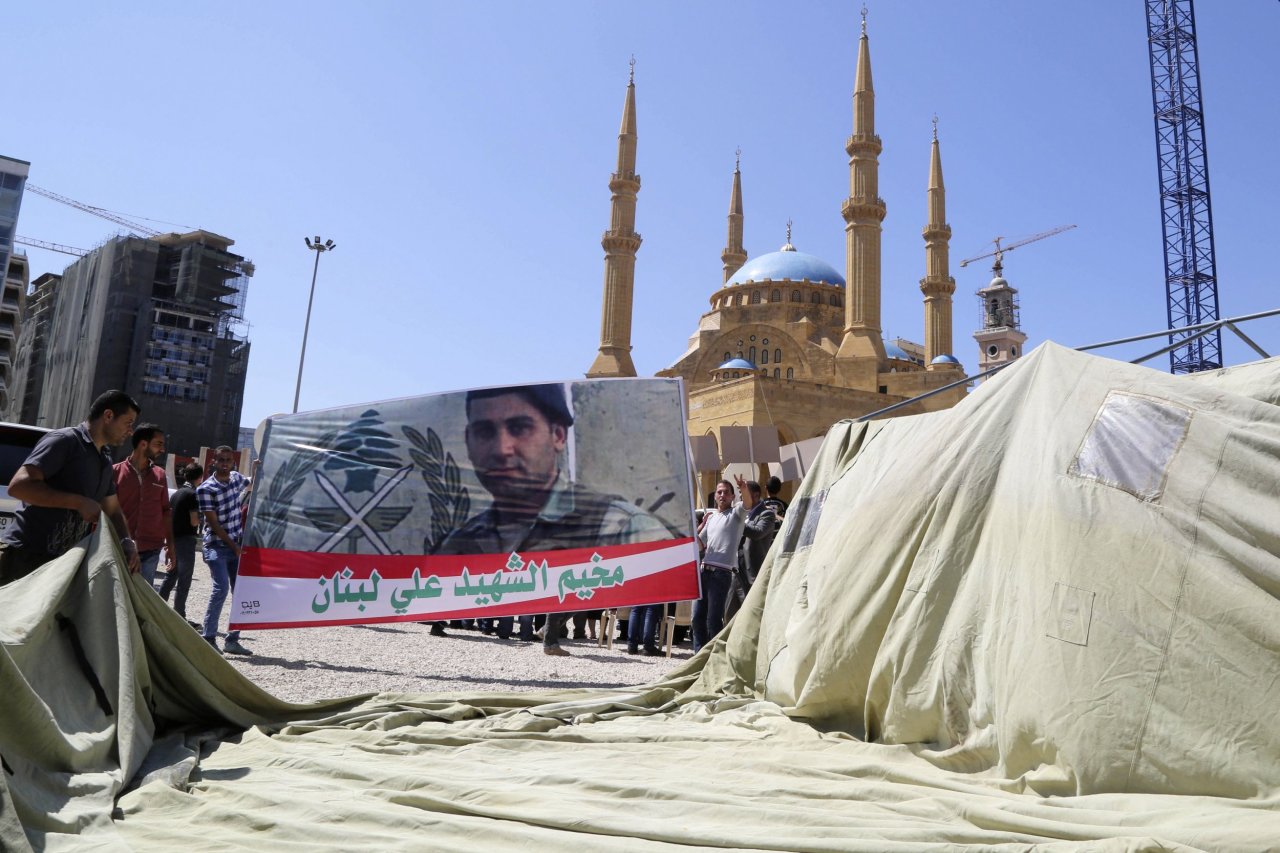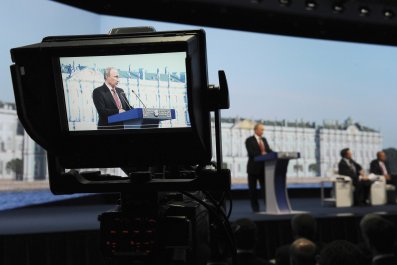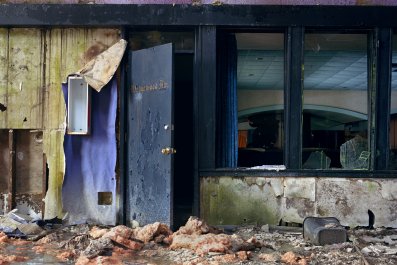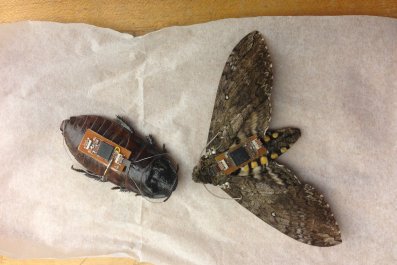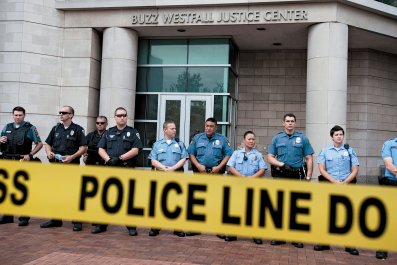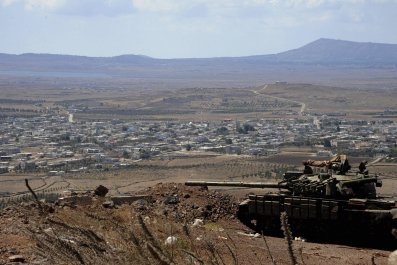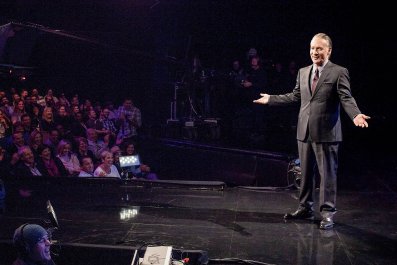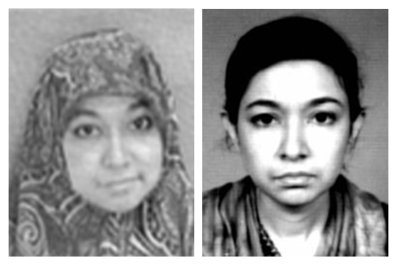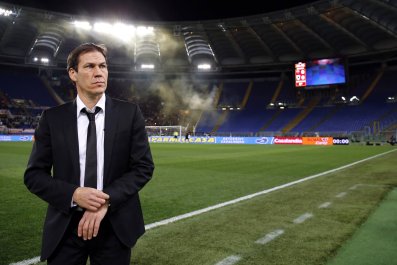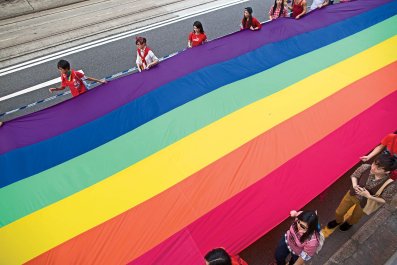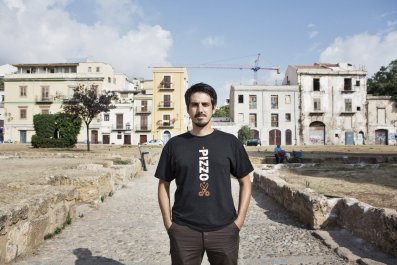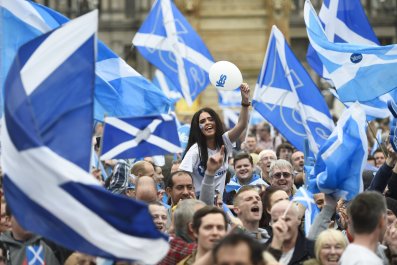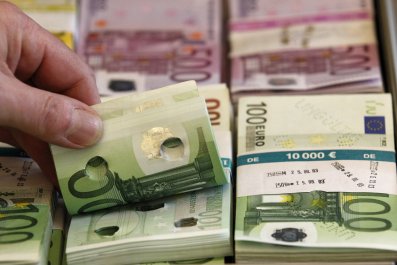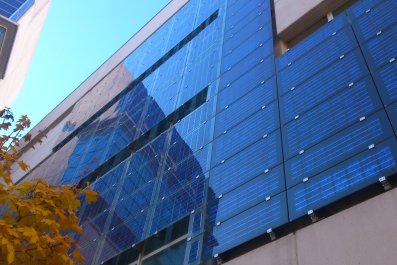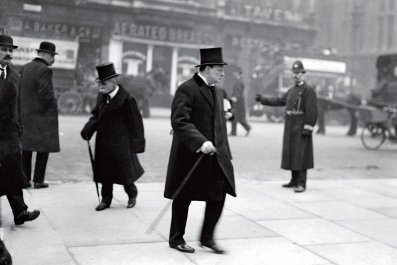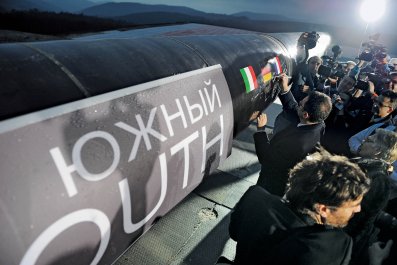The morning after Obama promised to "degrade and ultimately destroy" Isis, Lebanon woke up to news of more fatal clashes with jihadists on its fraying borders. In Beirut's glittering Downtown district, workers were morose. Taxi driver Imad used to make a good living ferrying expatriates between shops, hotels and restaurants. "Now there are no clients," he complained. "The tourists are afraid to come, between Hezbollah fighting and these extremists cutting off heads."
Six months ago anyone could drive through this exclusive part of town, framed by the elegant Lebanese parliament and the blue Mediterranean. Now army checkpoints and tanks block its wide boulevards. Heavily armed security squads guard its embassies and political centres, including the house of dynastic former prime minister Saad Hariri. It was Saad's father, the murdered Rafiq Hariri, who conjured Beirut's rebirth from the rubble of a 15-year civil war. He believed his fractured country could be reconstructed as a modern engine, its sectarian parts spinning together on a prosperous journey greased by capitalism. Today, Hariri's vision dominates Beirut's skyline, a phoenix risen in a blaze of glass towers, marble façades and expensive souks.
But Lebanon's engine is being derailed, along with its fragile equilibrium. Last month, the Lebanese Armed Forces (LAF) was dispatched to Arsal, a town on the Syrian border choked with refugees, dust and sectarian in-fighting where Isis and Salafist rivals Jabhat Al-Nusra had seized control. One hundred people died in the battle to retake Arsal and 29 Lebanese soldiers were captured. Two have since been beheaded. Isis is threatening more deaths to follow.
Was Isis feinting in Arsal? Or does the group have realistic designs on Lebanon? Hard on the heels of Iraq's spectacular implosion, local Lebanese are not sure what to believe. And Obama's four-point plan is being greeted with caution – even incredulity.
"Obama's speech is not a serious strategy, it is window dressing for the American electorate," a former senior prime ministerial adviser said. "We all know Isis is a manifestation of the bigger political fractures in the region. Military action from the US without a credible alliance between these other key players in Iran, Saudi and Qatar could actually forestall a natural death for Isis. It would have scary consequences for us all."
The Lebanese are understandably cynical about promises of international rescue. For three years, Syria's vicious wounds have bled unchecked across every aspect of Lebanon's body politic. Sunni and Shia strongholds are clashing more often, and body counts are higher. Hezbollah, Lebanon's major military power, continues to throw its might behind Assad inside Syria – opening the door to bloody retaliation in Beirut's streets and suburbs. Car bombs and political assassinations are once again topics of conversation in the capital's cafes.
Living on the brink is bad for business. The number of tourists visiting Lebanon fell again in the first half of 2014, 9% lower than 2013's dire numbers. Hotel rooms are half empty and shopping centres missed the traditional summer surge. Fewer paying customers have hit profits for thousands of restaurateurs, hoteliers, street vendors and other small businessmen.
But, as locals are quick to point out, the country is still defiantly standing. "Lebanon may be simmering but it's not boiling over" said Thanassis Cambanis, Century Foundation Fellow and author on Lebanon. Anxious predictions of a sectarian meltdown have – so far – overshot daily realities. The school year has started and streets are churning with the traffic of trade and commerce.
Before Isis took over Arsal last month, Saudi Arabia lifted its two-year travel ban to Lebanon. GDP was predicted to increase by 1%. Sunni leader Saad Hariri had returned from his lengthy sojourn between Paris and Riyadh, to prevent his constituents from sliding towards dreams of caliphates.
Lebanon's shock-absorption capacity has surprised everyone, even the Lebanese. Community reliance on a grey economy and local patronage has proved an unexpected source of resilience. It's a system that hijacks political institutions and cripples development. But doesn't fracture easily during periods of slow-burn crisis. "You can't break what doesn't exist," Cambanis said.
The crisis has also tested Beirut's gridlocked confessional politics – conceived specifically to prevent a rerun of civil war. The power-sharing system aims to balance the power of Christian, Sunni, Shia and Druze forces.
Karim Makdisi, Associate Professor of Politics at the American University of Beirut, says that some main players tried to tip this balance earlier in Syria's war, through tacit and even direct support for Salafist rebel groups. Now, he says, that support is being quickly recalibrated. Extremism's frightening regional advance has startled old foes into pragmatic accommodation.
"When it comes to threats like Isis, Lebanon's leaders understand they must work together to maintain a system they all need, politically and economically," Makdisi said. "Even bitter enemies like Hassan Nasrallah (leader of Hezbollah) and Saad Hariri (leader of the Sunni Future Movement party) know it would be disastrous for sectarian violence to spiral beyond their control."
Outside the capital, Lebanon dissolves into a patchwork of sectarian enclaves tucked into hills or spread across valleys. Memorials of war scar the landscape. Barely a family lives out of sight of a memento mori – a poster of a lost loved-one, a bullet-riddled wall or a partially destroyed building. Families here have been hardest hit by the troubles. And now the strain is beginning to tell, with a rise in clashes between Lebanese communities and informal settlements hosting Syrian refugees.
Joe Awad and his NGO, Beyond, is financed by international agencies to work in these areas, delivering humanitarian aid. He insists that most people have no interest in fighting – because they are struggling enough to live. "When we ask what people want – particularly the young people – they don't say 'guns', they say 'schools, jobs, opportunity.' We can't deny them these and still pretend we are serious about protecting Lebanon from extremists."
In fact, Isis stands little chance of staking a claim to Lebanon. Its "caliphate" lies hundreds of hostile miles away, on the other side of Assad's army. Hezbollah bars the road to connecting Arsal to other Sunni strongholds. But uncertainty casts a long shadow over the country.
Unsourced intelligence leaks claim 40 Isis cells are active here. Instead of looking to Obama for deliverance, Lebanese communities are turning inwards. Shia and Sunni militias are already armed. And, since August, reports are growing of Christian "self-defense" units, reactivated for the first time since the 1990s.
"It's incredibly dangerous to respond to the intangible Isis threat to the country by arming communities," one Western diplomat said. "In this case, fear of a paper tiger could create a real one that can't be controlled. And it obscures the bigger security conundrum: how to disassociate Lebanon from Syria's war by negotiating the departure of all foreign forces – including Hezbollah."
This division between those suspicious of military solutions and others relying on them goes to the heart of Lebanon's current predicament and the region's. Even a paper tiger may be enough to tip the balance here, either uniting factions against a common threat or causing enough fear to drive them apart.
Meanwhile, tourists are likely to remain thin on the ground for Imad. Asked if he thought a coalition against Isis would be good for Lebanon, he shrugged. "Let Obama try if he likes," he said. "I don't care who comes, as long as they bring back my living."



